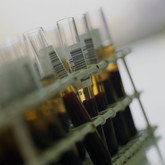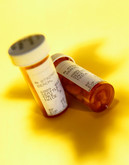Biosimilars/General
Fujifilm ramps up biosimilars production as UK court allows Humira biosimilar
A UK court has ruled in the favour of Japan-based Fujifilm Kyowa Kirin Biologics’ Humira biosimilar. The Fujifilm corporation has also announced a multi-million-dollar investment in its biologicals production facilities in the US.
Increasing access to biosimilars and generics in Europe
On 2 March 2017, the European Parliament voted on a resolution to strike a better balance between European Union (EU) countries’ public health interests and those of the pharmaceutical industry.
Amgen at the centre of biosimilars disputes
The disputes involve a biosimilar of Amgen’s biosimilar of Roche’s Avastin (bevacizumab) and Amgen’s blockbuster Neulasta (pegfilgrastim) being made by Coherus Biosciences.
FDA biologicals naming guidance could cost providers billions
Healthcare organizations have expressed their ‘grave concerns’ over the ‘enormous financial consequences’ of the US Food and Drug Administration’s (FDA) guidance on naming of biologicals.
Pharma associations issue position paper on biosimilar switching
The European Federation of Pharmaceutical Industries and Associations (EFPIA), European Biopharmaceutical Enterprises (EBE) and the International Federation of Pharmaceutical Manufacturers and Associations (IFPMA) have issued joint guidance for prescribers on switching between originator biologicals and biosimilars.
Biosimilars in 2016: the highlights
Previous years have been momentous for the biosimilars industry and 2016 is no exception [1]. Important milestones achieved during 2016 were the biosimilar approvals of Inflectra (infliximab-dyyb), Erelzi (etanercept-szzs) and Amjevita (adalimumab-atto) by the US Food and Drug Administration (FDA).
EMA to launch pilot for tailored advice on biosimilars development
The European Medicines Agency (EMA) announced on 16 December 2016 that it is planning to provide sponsors with tailored scientific advice on the development of biosimilars as part of a pilot programme that will be launched in February 2017.
EC publishes improved biosimilars information for patients
On 23 January 2017, the European Commission (EC) published a unique question and answer (Q&A) document for patients containing reliable information on biosimilar medicines.
European IBD specialists support switching to biosimilars
The European Crohn’s and Colitis Organization (ECCO) has published results of a consensus meeting held on 15 October 2016 in Vienna, Austria in which they support switching from reference infliximab to biosimilar infliximab [1].
European oncologists back biosimilars with position paper
On 16 January 2017, the European Society for Medical Oncology (ESMO) published a position paper on biosimilars saying that ‘biosimilars create opportunities for sustainable cancer care’ [1].











